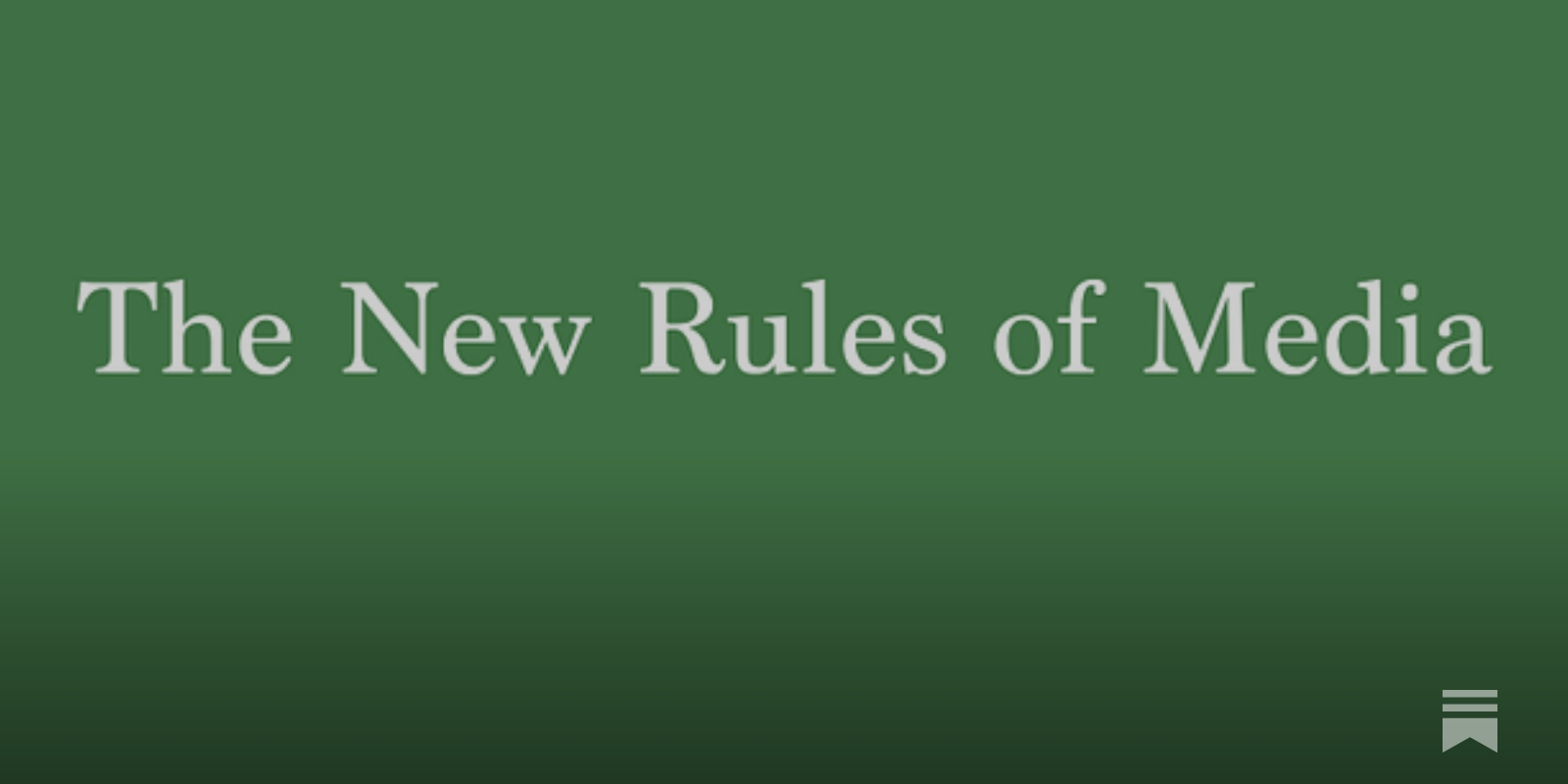Parts I found particularly interesting: > "Parasocial relationships are the name of the game. When people call for a Joe Rogan of the left, it seems like they don’t realize that one of the reasons he is so powerful is that he is many of his listeners’ best friend. People spend hours and hours a day with him; his show and its extended universe have become an on-demand loneliness killing service. The power (and value) of that relationship is unmatched. Puck is a parasocial publication, that’s why you hear the tentpole writers’ voices in solo podcasts." Wondering how we could make Kiwi more about relationships - find a way to make people comment more I guess? > "Each time a platform decays or fades in popularity there is a fresh chance to reset the online hierarchy. New voices go from obscurity to prominence and old brands start losing their holds on authority. Look for those moments and take advantage of them. (See the exodus from X to Threads and Bluesky.)" Since now Week in Ethereum shuts down and Twitter gets worse as a source of Ethereum content, it could be an opening for us. > "Locality and specificity are good things and offer ways to preserve meaning in the increasingly contextless internet. You have to remain tied to your own digital geography or the scope of a specific viewpoint. An audience wants to feel like an in-group, like they’re in on the joke, even if that joke is just that the mayor of New York sucks." I think being an Ethereum-focused place is a good niche for us. > "The most compelling publications or media brands are the ones that can throw the best parties, because it shows they can mobilize an IRL group of interesting people, who are then consumers and customers and clients. (See Feed Me, The Drift, Byline / The Drunken Canal cinematic universe.) Media brands increasingly work like fashion brands: Consumers have to want to wear them. If no one wants to come to your party, you’re doing it wrong." Thankfully our meetups are popular and you want to come to our parties :) > "Average consumers are less obsessed with newsiness than the media industry tends to think. Evergreen content is good, whatever is interesting is good, even if it’s “old.” Non-newsy newsletters are replacing the racks of undated magazines at the grocery store checkout and they’re probably making more money than you are. (See also the true crime boom: Who cares if it’s not a recent murder?)" We are focused on new things because the tech is moving fast, and we have some evergreen content from time to time. Wondering if we should have more of it? > "Everything is iterative. A single Instagram or Twitter account becomes a newsletter becomes a small publication with a few contributors becomes a corporation. (See The Free Press.) Thus it makes sense to build your concept in public and test its engagement at every stage. Every powerful brand starts with a single post." When you look back at Kiwi in April 2023, with 3 links per day handpicked by our friends, we def went a long way. And it's still Day 1! > "No one is media literate. The more you explain who you are and what you do, the better. Preface your newsletter with the explanation of wtf you’re writing, anyway, because your subscribers don’t remember. The “enhanced bios” of NYT, Vox, etc, are long because of SEO but they also make explicit the expertise that was once just assumed from professionalized media." We def need to refine our message and share it again and again. | |

